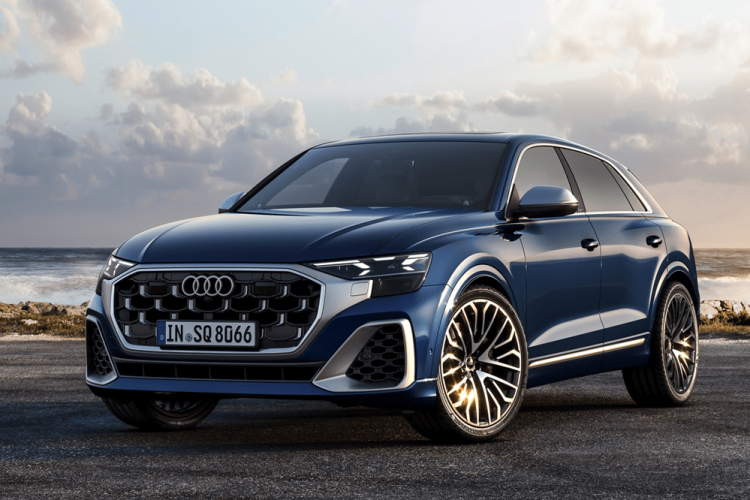Audi is gearing up to introduce its Q8 plug-in hybrid SUV to the Australian market in the fourth quarter of this year. The Q8 60 TFSIe will arrive in a high-specification grade and will start at $148,375 (excluding on-road costs). This move follows the recent debut of Audi’s Q5 55 TFSIe, a plug-in hybrid midsize SUV.
Facing competition in the luxury SUV segment, the Q8 plug-in hybrid will vie against rivals like the Volvo XC90 Recharge Ultimate PHEV, BMW X5 50e, Porsche Cayenne E-Hybrid Coupe, and Range Rover Velar PHEV. Within Audi’s own lineup, the Q8 PHEV fits between the petrol-powered Q8 55 TFSI and the more performance-oriented SQ8 TFSI, offering diverse options in terms of pricing and performance.
Under the hood, the Q8 60 TFSIe combines a 3.0-liter turbocharged petrol engine generating 250 kW/450 Nm with a 100 kW/400 Nm electric motor. This hybrid powertrain delivers a remarkable total system output of 340 kW/700 Nm, propelling the SUV from 0 to 100 km/h in just 5.4 seconds. With a 14.4 kWh rear-mounted battery, the Q8 PHEV boasts an estimated electric range of up to 54 km on the WLTP cycle.
Equipped generously, the Audi Q8 60 TFSIe comes with features like Audi’s S-line exterior styling, 21-inch alloys, a panoramic sunroof, HD Matrix LED headlights, Valcona leather upholstery, heated front sports seats, tri-zone climate control, a dashboard with three screens, and a Bang & Olufsen 3D sound system. Additionally, it includes advanced driver assistance features such as adaptive cruise control, a 360-degree camera, park assist, and intersection assist.
This launch underscores Audi’s commitment to expanding its electrified portfolio. The brand aims to phase out combustion engines by 2023 and intends to introduce new combustion engine models only after 2026. In the Australian market, Audi already offers electric models such as the e-tron S and e-tron S Sportback SUVs, along with the e-tron GT and RS e-tron GT. Furthermore, the Q8 will soon be available in fully electric e-tron wagon and Sportback e-tron versions, solidifying Audi’s presence in the electric vehicle market.


































Discussion about this post